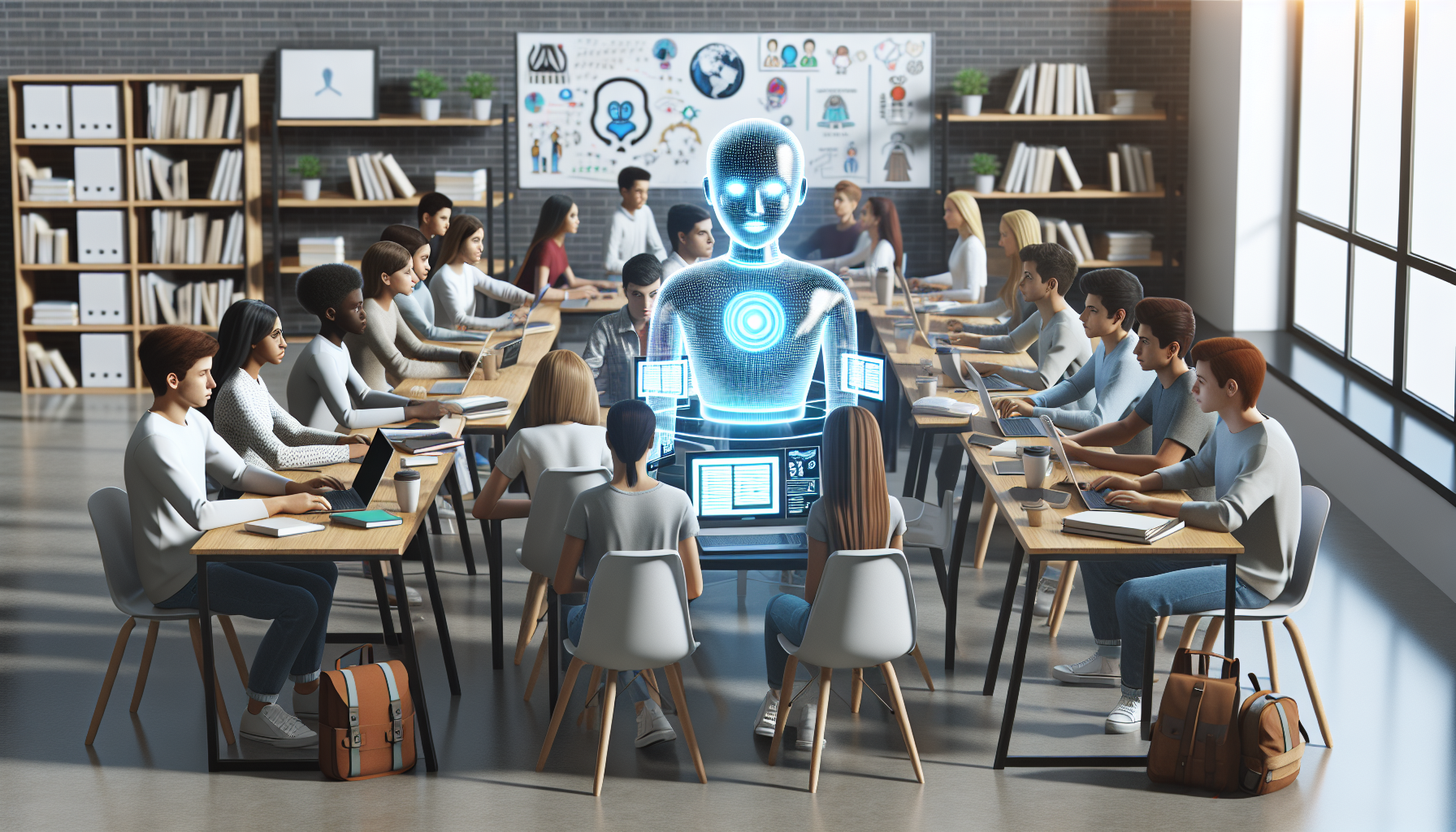Immediate Feedback: AI in Assessments
See how AI provides instant feedback to students, boosting their learning process.

In an era marked by rapid advancements in technology, artificial intelligence (AI) has emerged as a revolutionary force, particularly in the realm of education. One of the most significant contributions of AI to educational institutions is its ability to provide immediate feedback to students on their assessments. This kind of instant feedback has transformed the learning process, enabling students to gain insights into their performance in real-time, thereby fostering a more engaging and effective educational experience. The traditional grading systems were often delayed, leading to students missing critical learning opportunities as they awaited their results. By integrating AI into assessments, educators are leveraging technology to bridge the gap between performance and learning, ensuring that students can learn from their mistakes almost instantaneously and refine their skills more efficiently.
AI-enabled platforms analyze students' answers using sophisticated algorithms that understand the nuances in their responses. Whether it's multiple-choice questions or more complex essays, AI systems can evaluate the input and provide personalized feedback tailored to individual students. This immediate response promotes a feedback loop where students can clarify their doubts and adjust their learning strategies in real-time. For example, if a student makes an error in a math problem, the AI can not only highlight the mistake but also offer step-by-step guidance on solving similar problems. Such personalized assistance goes a long way toward boosting a student's confidence and understanding, enabling them to embrace challenges rather than shy away from them. This timely feedback allows for a deeper engagement with the content, helping students to explore concepts with greater curiosity and interest.
"With immediate feedback, students become active participants in their learning journey."
The ecosystem of AI in education is vast and varied. From chatbots that answer student queries on-demand to platforms that analyze classroom participation, the integration of AI fosters a culture where continuous learning is the norm. One of the remarkable features of these AI systems is their ability to track a student's learning trajectory over time. This tracking empowers educators to customize lesson plans and tailor their teaching methods based on individual progress. Consequently, students benefit from a curriculum that aligns not only with their academic standards but also their personal learning pace and styles. In this dynamic learning environment, where adjustments can be made on the fly, students gain a sense of ownership over their educational journey, making them more invested in their outcomes.
Furthermore, the data-driven approach of AI can uncover valuable insights into common areas where students struggle. By analyzing aggregate responses, educators can identify prevalent learning gaps across the classroom and adjust their instruction accordingly. This provides a dual benefit: enhancing overall class performance while also ensuring that individual students do not feel lost in the collective learning process. Additionally, such insights can help teachers to differentiate instruction, allowing them to target specific learning needs effectively. This feature is especially crucial in diverse classrooms where students come with varying backgrounds and learning capabilities.
"AI's ability to provide data-driven insights empowers teachers to tailor their approach for enhanced student engagement."
The role of educators remains crucial in this evolving landscape. While AI can provide instantaneous feedback, it does not replace the human element of teaching. Teacher-guided control over these AI tools enables informed decisions regarding their use. Educators can delineate when and how AI should be employed and can additionally act as mediators by providing the necessary support when students encounter challenges. The collaboration between technology and teachers strengthens the learning process, ensuring that AI acts as an aide rather than an authority. Thus, educators play a pivotal role in interpreting AI-generated insights and translating them into actionable teaching strategies within the classroom.
Adopting AI technologies in education also necessitates considerations around ethics and privacy. Schools must ensure robust protocols are in place to protect student data while maximizing the benefits of AI-generated assessments. Transparency about how student data is used and stored will go a long way in fostering trust among students and parents. Moreover, equipping educators with training on AI tools can enhance their confidence in integrating these technologies into the classroom, unlocking further potential benefits for students. With a well-thought-out plan that prioritizes both innovation and security, the educational landscape can truly harness AI to uplift the learning experience.
Moreover, the evolving nature of educational assessments means that academic performance is no longer confined to traditional metrics. AI allows a more holistic view of a student's capabilities, combining quantitative measures with qualitative insights. As students gain access to instant, comprehensive feedback, their ability to self-assess improves significantly. They begin to develop metacognitive skills, becoming aware of their learning processes and strategies. This foundation for self-directed learning will serve them well beyond the classroom, preparing them for future academic endeavors or professional fields.
As AI continues to develop, the possibilities for its use in education are nearly limitless. From adaptive learning systems that adjust content based on student understanding to virtual reality integrations for enhanced interactive experiences, the future is bright. Institutions worldwide are starting to recognize the importance of aligning their curricula with technological advancements to stay relevant and effective. By embracing AI's transformative power, educators can empower students with the skills they need to navigate an increasingly complex world.
To summarize, AI is reshaping the educational landscape by providing instant feedback that enhances students' learning experiences. The synergy between teacher guidance and AI technology creates a tailored educational framework where every student can thrive in their unique ways. This innovative approach not only bolsters immediate learning but also cultivates vital skills for lifelong learning. In promoting a culture of continuous improvement and engagement, AI stands as a catalyst for educational transformation, enriching the journey of learning for generations to come.
"AI is not merely a tool, but a partner in the journey of education, empowering both students and educators alike."